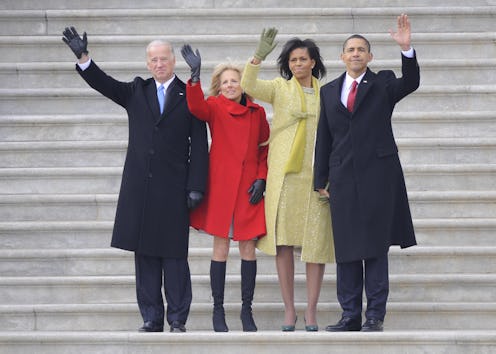News
The Sheer Improbability Of Obama's Presidency

Reflecting on the end of his incredible eight years in office, the country would be remiss to forget how astronomically improbable Barack Obama's presidency really was. These days, and particularly for the young Americans who came of age during his time in office, a black president seems as normal as a white one. However, Obama's journey to the White House was a historic event that can't be fully appreciated without recognizing its sheer unlikeliness.
For those who became culturally cognizant during Obama's presidency, it can be difficult to conceptualize how unlikely a black president seemed. Obama was the fifth black United States Senator ever. Black Americans had rarely even played the president on TV or in film, and only a few years before Obama's election was a black president represented as a legitimate option instead of a satirical joke. The idea of a non-white president was so foreign (literally, because it only happened in other countries) to the American public that it seemed like it would never be a possibility in the United States.
Obama's race wasn't the only factor working against him either — Obama was relatively inexperienced when he decided to run for office. He was sworn into national office as a U.S. senator just two years before announcing his presidential campaign, and had a combined total of 10 years' experience in public office. His opponent in the general, Senator John McCain, had already served in Congress for 25 years when he started his campaign.
Yet Obama still managed to pull it off, using his hopeful message, empowering rhetoric, and well-calculated timing to take him to the White House. After that, the economy improved from its abysmal status at the end of the Bush administration, healthcare is increasingly accessible for all Americans, and the country has been collectively able to have some tough but necessary conversations about race. Although new problems have certainly arisen during Obama's terms that future presidents will now be in charge of handling, he also helped push the U.S. forward significantly over the last eight years.
Obama's legacy isn't complete without full appreciation of his unlikely path to the presidency. The end of his time in office is truly the end of an era; there's no way to know when another minority or young, hopeful activist will assume the presidency. What everyone should hope is that the country is in a better place to receive their message of activism and equality when it does come, and Obama's legacy will certainly be a part of making that happen.